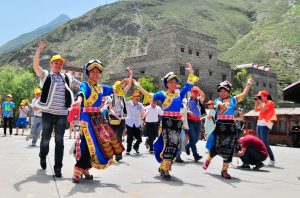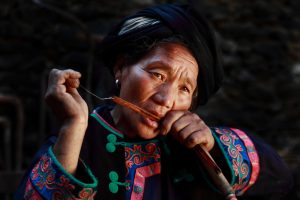Taoping
China
2024
Contact
Website: https://www.abatour.com//travel/lixian/taoping/
Nestled in Lixian County within the Aba Tibetan and Qiang Autonomous Prefecture of Sichuan Province, Taoping Village is a historic Qiang settlement located 139 kilometers from Chengdu City. Home to 1,258 residents, the village boasts a rich heritage dating back to 111 BC with the Taoping Qiang Castle, the most well-preserved ancient Qiang watchtower complex in the world. The villagers engage in agriculture and animal husbandry, cultivating crops like corn and cherries, while also embracing tourism. With its labyrinthine alleys, traditional customs, and vibrant cultural practices, Taoping Village has become a must-visit destination for those seeking to explore Qiang culture.
HIGHLIGHTS
-

Living Museum of Qiang Culture
Taoping Qiang Castle spans 40,000 square meters and is home to 462 Qiang people. This living museum showcases 15 ancient buildings and features unique architectural elements, including integrated watchtowers, an intricate underground water system, and a network of 1,960-meter-long alleyways. Visitors can immerse themselves in traditional Qiang life through rituals, weddings, and other ceremonies, making it a living testament to the region’s rich cultural heritage.
-

Promotion of Culinary Tourism
To enhance traditional culinary tourism, Taoping Village has introduced incentives that blend cultural heritage with culinary innovation. This includes crafting promotional materials to highlight local ingredients and a specialized award system to encourage local participation. Rewards such as a 5,000 Yuan prize for declaring a local dish as heritage cuisine and an additional 10,000 Yuan for food series achieving over 200,000 Yuan in annual sales aim to promote sustainable use of local resources and attract visitors.
-

Engaging Study Tour Initiatives
Local residents are actively developing specialized study tour courses, incorporating Qiang cultural elements and utilizing the region’s natural resources. Seven villagers have been trained as guides, leading initiatives to create immersive heritage-based projects. These educational programs not only strengthen the conservation of Qiang culture but also diversify tourism offerings, attracting more visitors and enhancing the quality of study tours.

